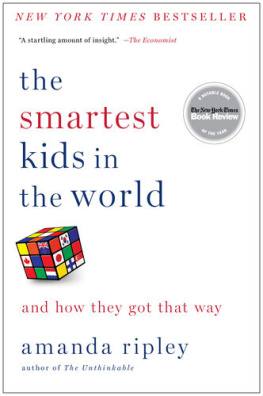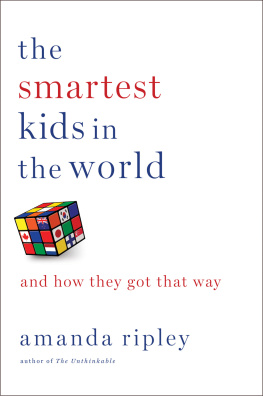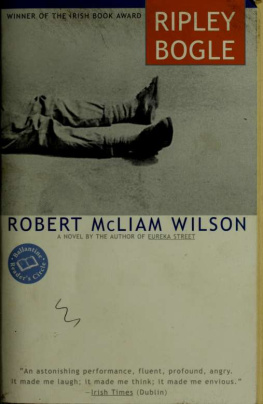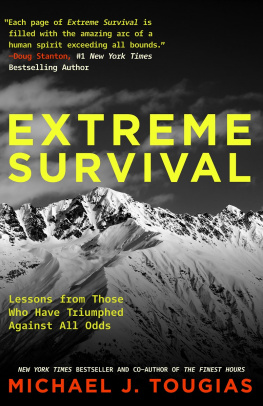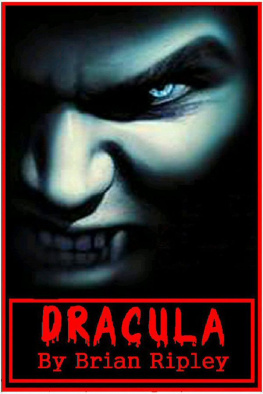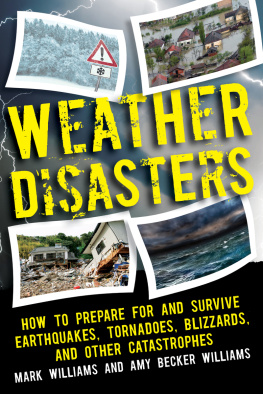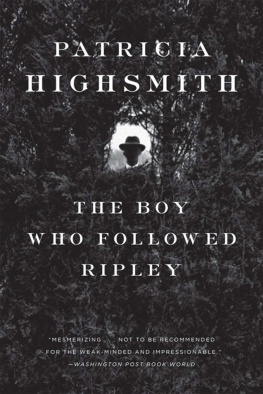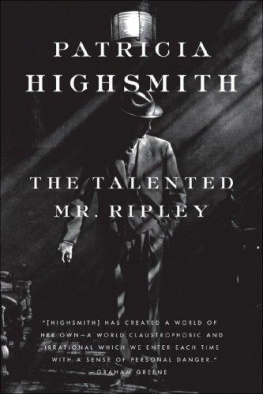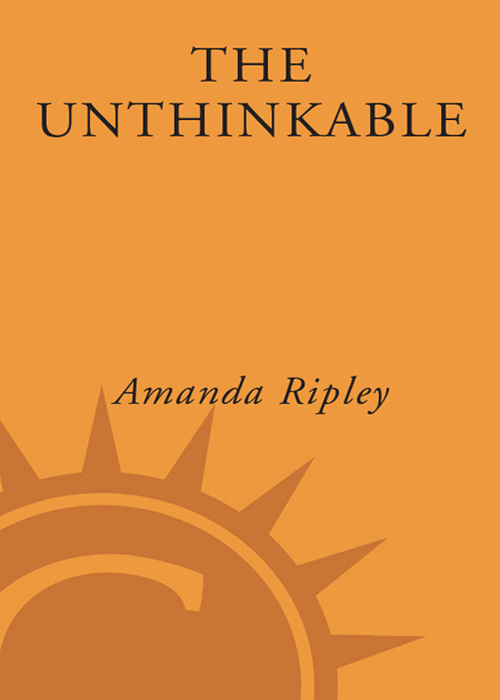
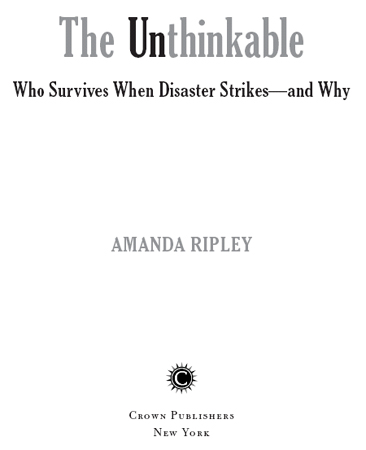
Contents
To John
Introduction
Life Becomes Like Molten Metal
O N THE MORNING of December 6, 1917, a bright, windless day, a French freighter called the Mont Blanc began to slowly pull out of the Halifax harbor in Nova Scotia. At the time, Halifax was one of the busiest ports in the British Empire. There was a war on in Europe, and the harbor groaned with the churn of ships, men, and weapons. The Mont Blanc was headed for France that day, carrying over twenty-five hundred tons of explosives, including TNT. While passing through a narrow channel in the harbor, a larger ship, the Imo from Belgium, accidentally rammed the bow of the Mont Blanc.
The collision itself was not catastrophic. The Imo sailed on, in fact. But the crew of the Mont Blanc knew that their ship was a floating time bomb. They tried to put out the fire, but not for very long. Then they scrambled into lifeboats and paddled for shore. For a few heartbreaking moments, the Mont Blanc drifted in the harbor. It brushed up against the pier, setting it on fire. Children gathered to watch the spectacle.
Many of the worst disasters in history started quite modestly. One accident led to another, until a fault line opened up in a civilization. About twenty minutes after the collision, the Mont Blanc exploded, sending black rain, iron, fire, and wind whipsawing through the city. It was the largest bomb explosion on record. The blast shattered windows sixty miles away. Glass blinded some one thousand people. Next, a tidal wave caused by the explosion swamped the shore. Then fire began to creep across the city. In the harbor, a black column of fire and smoke turned into a hovering white mushroom cloud. Survivors fell to their knees, convinced that they had seen a German zeppelin in the sky.
At the moment of the explosion, an Anglican priest and scholar named Samuel Henry Prince happened to be eating breakfast at a restaurant near the port. He ran to help, opening up his church as a triage station. It was, strangely enough, Princes second disaster in five years. He had responded to another local cataclysm in 1912, when a luxury cruise liner called the Titanic had sunk some five hundred miles off the coast of Halifax. Back then, Prince had performed burials at sea in the frigid waters.
Prince was the kind of man who marveled at things others preferred not to think about. On the awful day of the explosion, he was astounded by what he saw. Prince watched men and women endure crude sidewalk operations without obvious pain. How was one young soldier able to work the entire day with one of his eyes knocked out? Some people experienced hallucinations. Why did parents fail to recognize their own children at the hospitaland, especially, at the morgue? Small details nagged at Prince. On the morning of the explosion, why was the very first relief station set up by a troupe of actors, of all people?
That night, a blizzard hit Halifax, the epics final act. By the time the catastrophe had rippled out across the land, 1,963 people would be dead. In silent film footage taken after the blast, Halifax looks like it was hit by a nuclear weapon. Houses, train terminals, and churches lie like pick-up sticks on the snow-covered ground. Sleighs are piled high with corpses. Here were to be found in one dread assembling the combined horrors of war, earthquake, fire, flood, famine and storma combination for the first time in the records of human disaster, Prince would write. Later, scientists developing the atomic bomb would study the Halifax explosion to see how such a blast travels across land and sea.
After helping rebuild Halifax, Prince moved to New York City to study sociology. For his PhD dissertation at Columbia University, he deconstructed the Halifax explosion. Catastrophe and Social Change, published in 1920, was the first systematic analysis of human behavior in a disaster. Life becomes like molten metal, he wrote. Old customs crumble, and instability rules.
What makes Princes work so engaging is his optimism. Despite his funereal obsessions, he saw disasters as opportunitiesnot just, as he put it, a series of vicissitudes mercifully ending one day in final cataclysm. He was a minister, but he was clearly enchanted by industry. The horrific explosion had, in the end, blown Halifax into the 20th century, forcing many changes that were for the better. His thesis opened with a quote from St. Augustine: This awful catastrophe is not the end but the beginning. History does not end so. It is the way its chapters open.
After Princes death, the field of human behavior in disasters would languish. Then with the onset of the cold war and a new host of anxieties about how the masses might respond to nuclear attacks, it would come back to life. After the fall of communism, it would stagnate againuntil the terrorist attacks of September 11, 2001. Prince seemed to anticipate the temptation for people to avert their eyes. This little volume on Halifax is offered as a beginning, he wrote. Dont let it be the end, he pleaded. Knowledge will grow scientific only after the most faithful examination of many catastrophes. The remainder of the century would prove rich with material.
Most of us have imagined what it might be like to experience a plane crash or a fire or an earthquake. We have ideas about what we might do or fail to do, how it might feel for our hearts to pound in our chests, whom we might call in the final moments, and whether we might be suddenly compelled to seize the hand of the businessman sitting in the window seat. We have fears that we admit to openly and ones that we never discuss. We carry around this half-completed sentence, filling in different scenarios depending on the anxiety of the times: I wonder what I would do if
Think for a moment about the narratives we know by heart. When I say the word disaster, many of us think of panic, hysterical crowds, and a kind of every-man-for-himself brutality; an orgy of destruction interrupted only by the civilizing influence of professional rescuers. Yet all evidence from Prince until today belies this script. Reality is a lot more interestingand hopeful.
What Prince discovered in Halifax was that our disaster personalities can be quite different from the ones we expect to meet. But that doesnt mean they are unknowable. It just means we havent been looking in the right places.
The Things Survivors Wish You Knew
This book came about unexpectedly. In 2004, as a reporter working on Time magazines coverage of the third anniversary of 9/11, I decided to check in with some of the people who had survived the attacks. I wondered how they were doing. Unlike many of the families of the victims, the survivors had kept to themselves, for the most part. They felt so luckyor guilty or scarredthat they hadnt wanted to make too much noise. But there were tens of thousands of these survivors out there, people who had gone to work in a skyscraper one morning and then spent hours fighting to get out of it. I was curious to hear what had happened to their lives.
I got in touch with the World Trade Center Survivors Network, one of the first and largest support groups, and they invited me to sit in on one of their regular meetings. They met in a fluorescent-lit office space, high above the racket of Times Square. As I rode up in the elevator one evening, I prepared myself for an exchange of grief. After 9/11, I had heard so many stories. Every widow, firefighter, and victim had a unique tragedy to tell, and I can still recite those interviews almost word for word. The citys pain seemed to have no bottom.
Next page

